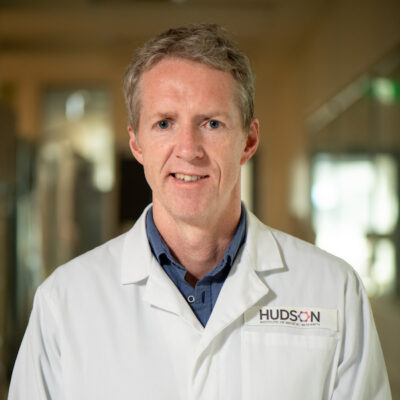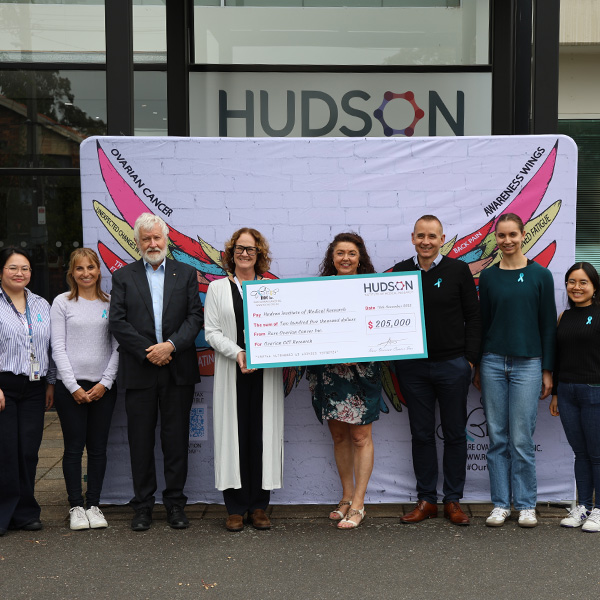Never stop asking – hope for pancreatic cancer patients
By Rob Clancy, staff writer
Pancreatic cancer is predicted to be the second leading cause of cancer-related death by 2030. While other cancer survival rates are improving, for pancreatic cancer patients this has been virtually unchanged for four decades.

For the first time, our researchers have used genetic tumour profiling to diagnose pancreatic cancer. Lead pancreatic surgeon, Dr Daniel Croagh, along with clinical research fellow Dr Joanne Lundy and research group head Professor Brendan Jenkins, hope their new technique will offer earlier diagnoses and more treatment options for pancreatic cancer patients.
The pancreas challenge
Pancreatic cancer diagnosis is difficult because the pancreas sits behind other organs, making it notoriously difficult to perform a biopsy. Doctors must pass a scope from the mouth to the stomach to view the pancreas using ultrasound. Only after this invasive procedure can a biopsy be performed.
Sadly, biopsy samples are often too small to establish a diagnosis. As a result, patients must go through the trauma of multiple biopsies when the result is not clear.
Persistence pays – earlier pancreatic cancer diagnoses
Refusing to accept the status quo, the team believed that cutting-edge genetic analysis of a small biopsy sample could establish a diagnosis first time. Their persistence paid off.
The team‘s trial, using cutting-edge genetic analysis of biopsy material, revealed that diagnostic accuracy can be improved. In fact, their results, published in Clinical Cancer Research, improved pancreatic cancer detection from 78 to 91 per cent.
“Patient samples are in fact large enough to be used for accurate first-time diagnoses and drug selection,” says Dr Lundy.
The research opens the door for earlier diagnoses of pancreatic cancer as well as the tumour type, which could see patients like Concetta Vasille begin a tailored treatment sooner.
“Our hope is that survival rates will improve as more patients are offered genetic profiling,” says Prof Jenkins.
“He saved my life. I am a lucky girl.” — patient Concetta Vasille
Conventional testing was unable to detect Concetta Vasille’s pancreatic cancer. Despite this, Dr Croagh scheduled surgery and used genetic tumour profiling which returned positive results, reinforcing the decision to proceed. Concetta was in surgery the next day and postoperative tumour analysis confirmed pancreatic cancer.
“Concetta’s case highlights that genetic analysis can provide a diagnosis when conventional testing is inconclusive,” says Dr Croagh.
Collaborators | Monash University; Monash Health
Funders | Pankind; Victorian Cancer Agency (VCA)
Contact us
Hudson Institute communications
t: + 61 3 8572 2761
e: communications@hudson.org.au
About Hudson Institute
Hudson Institute’ s research programs deliver in three areas of medical need – inflammation, cancer, women’s and newborn health. More
Hudson News
Get the inside view on discoveries and patient stories
“Thank you Hudson Institute researchers. Your work brings such hope to all women with ovarian cancer knowing that potentially women in the future won't have to go through what we have!”





